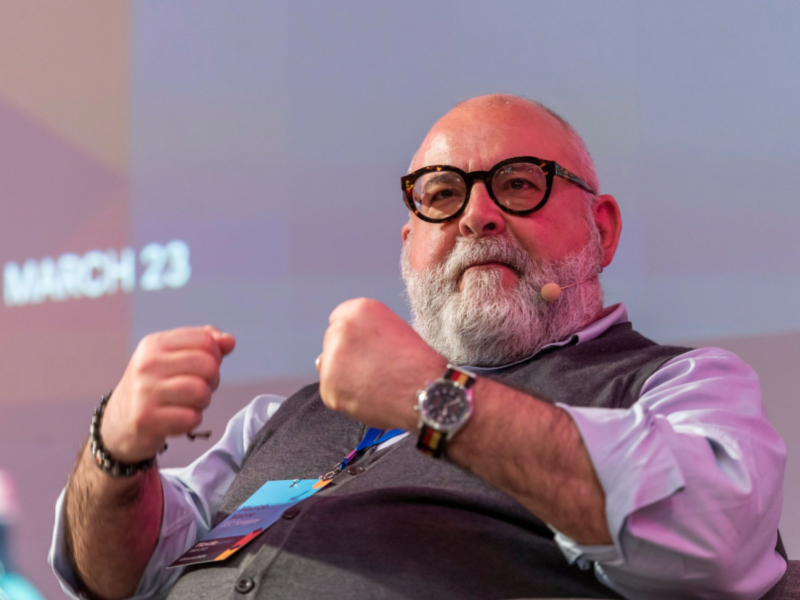Diana Marszalek 29 Mar 2023 // 8:14PM GMT

FRANKFURT — With a dizzying array of social, political and economic forces making today’s world exceedingly complex — or at least feel that way — communicators ought to focus on making information palatable to stakeholders in order to have impact, according to speakers at the PRovoke EMEA Summit last week in Frankfurt.
“There is so much noise out there. There is so much news it can be overwhelming to everyone whether it’s a CEO or an intern or a client,” said Gregor Wills, head of PR and communications of Allianz X. “The job that we can do is focus on absorbing it, collating it and sharing the important things that matter to stakeholders and, when necessary, interpreting it for them. That’s where there is a real opportunity for us.”
Wills’ comments were part of a three-person panel discussion on ‘Governing Complexity in Time of Uncertainty’ sponsored by SEC Newgate, during which participants covered a range of topics contributing to today’s complicated reality and how to manage it. Maurizio Maione, who is SEC Newgate’s chief of staff of the group CEO, and Marie De Corier, Nielsen Europe’s director of government relations, also participated.
While panelists said there certainly are numerous external forces at play — primarily the confluence of societal, geopolitical and economic issues — they spent much of the conversation focused on the role the onslaught of information plays in disarray and how communicators can play an important role in boiling down what is real, what is important and why it matters.
Maione said he sees boiling down information — data, insights and news — into its simplest form as the responsibility of communicators because only then can it be used in decision making or driving action.
Doing that, however, requires the kind of analytical skills not traditionally associated with communications, meaning it would behoove the industry to hire people with expertise in other areas such as international affairs and economics.
Equally important is backing up that information with the hard facts — science, data etc. — that make it truly actionable, particularly when it comes to engaging stakeholders, and turning them into advocates, he said.
“We need to tackle with hearts and mind,” Maione said.
Wills also noted the tumult caused by the overload of information. “A lot of individuals when faced with complexities or uncertainties either try to block it out or invent something that helps them understand it," he said.
It’s PR’s role to counter that, he said. “For us it means focus. It means simplicity. Let’s not read all the news of the world. Let’s focus on our community.” Rather than push messages, communicators would be more effective by narrowing down their audiences, talking to stakeholders to understand what they want and figure out how to give it to them, he said.
De Corier, meantime, said media is also a contributor to today’s complicated times, given the complexity of a media ecosystem that has unregulated platforms, incalculable audiences and rampant misinformation.
While legacy media traditionally abided by industry standards and practices (including using services like Nielsen to quantify audiences) “digital transformation has blown that up,” taking oversight and transparency in media with it. “Who the operator is whether it’s a professional media company or not has become irrelevant in today’s media world. Now it’s all about the content,” she said.
With that, marketers don’t have access to the same level of third-party research to target audiences they once did — let alone the guarantee of reaching humans over bots, De Corier said, stressing the importance of a fair and transparent playing field given the media’s power of sway.
“We all live our lives in our corner and the media, in the end, is our window to the world,” she said noting the media’s spanning role in disseminating information, enabling advertisers to reach audiences and providing governments that want to influence opinion a platform.
The imperative need to rectify its issues “goes beyond marketing,” De Corier said. “It’s a democratic question.”



































.jpg)


















